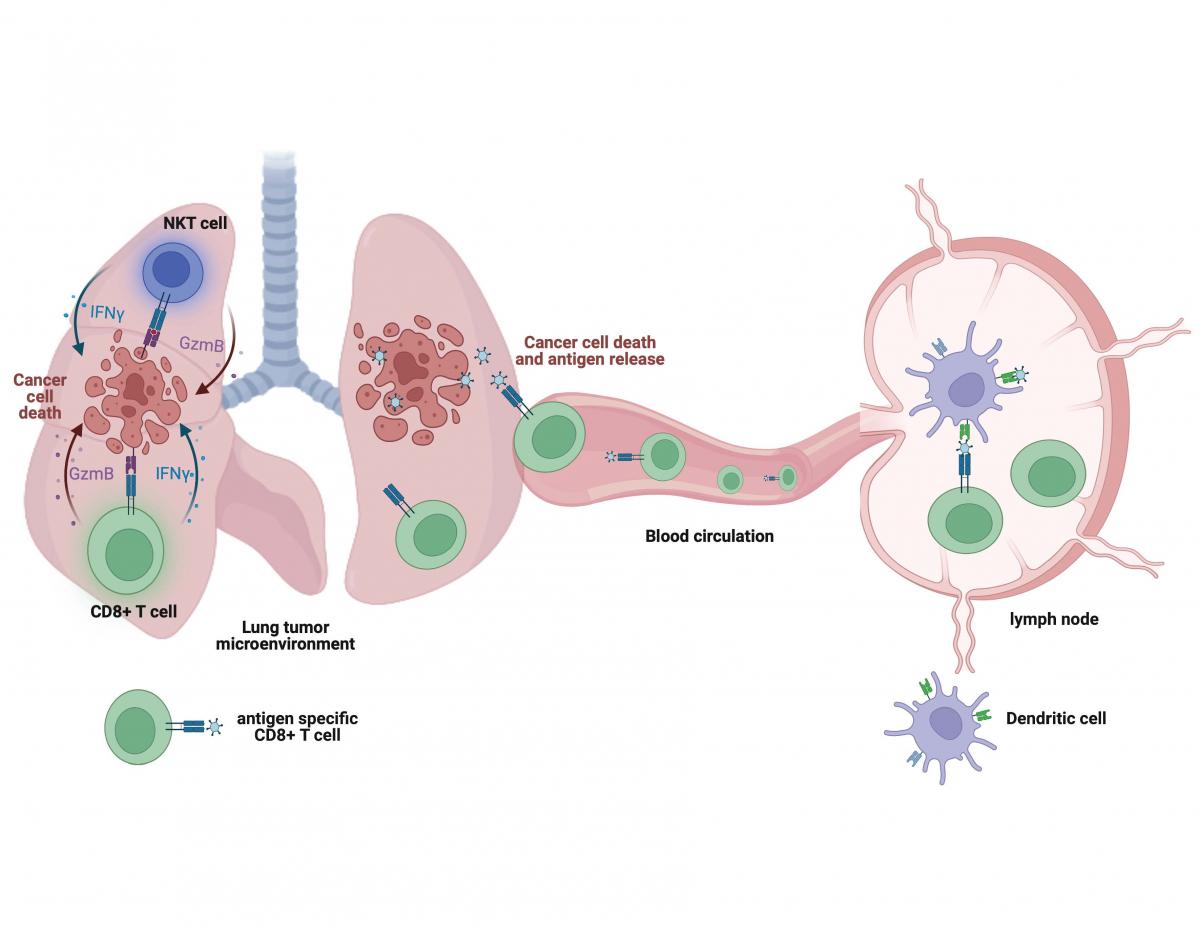Taking a Deep Breath and Step Forward in Lung Cancer Research
Columbia BME professor, Ke Cheng, discovers a new method to fight lung cancer and stop its recurrence using mouse models.
Columbia BME professor, Ke Cheng and his research group have made great progress in fighting lung cancer. The group discovered that using nanobubbles called exosomes through inhalation can directly deliver Interleukin 12 (IL12) mRNA to the lungs.
IL12 is a powerful cytokine that is used to fight cancer, however the delivery causes a multitude of severe side effects. Therefore, its application is limited to a direct injection to the tumor. Cheng’s lab discovered using inhalation can achieve locally concentrated IL12 in the lungs and instead of a direct injection into the tumor can directly fight the cancer with minimal side effects. The inhalation method is more efficient in building higher concentrations of IL12 right where it is needed, compared to other ways of delivering mRNA such as liposomes (tiny fat-based particles).

By inhaling the nanobubbles that have the blueprint for IL12, it is abruptly inciting an antitumor activation state in the tumor to augment its immunogenicity. The tumor’s response results in expanding tumor cytotoxic immune effector cells, forming immune memory, improving antigen presentation and specific T cell priming.
"Exosomes are usually injected systemically into the bloodstream,” said Ke Cheng, Professor of Biomedical Engineering at Columbia University. “Here we show that inhaled exosomes can efficiently reach the lung and deliver an anti-lung cancer cargo, IL12 mRNA. This forms the foundation for the development of new inhalable drugs to treat lung cancer."
Using mouse lung cancer models, this therapy has been demonstrated to fight primary neoplastic lesions within the lungs and provide significant protection against tumor rechallenge. This advancement in cancer research will be able to help those suffering with Lung Carcinoma, which has one of the lowest five-year survival rates in the world.
Photo credit: Mengrui Liu, via Biorender
Exosomes are usually injected systemically into the bloodstream. Here we show that inhaled exosomes can efficiently reach the lung and deliver an anti-lung cancer cargo, IL12 mRNA. This forms the foundation for the development of new inhalable drugs to treat lung cancer.
